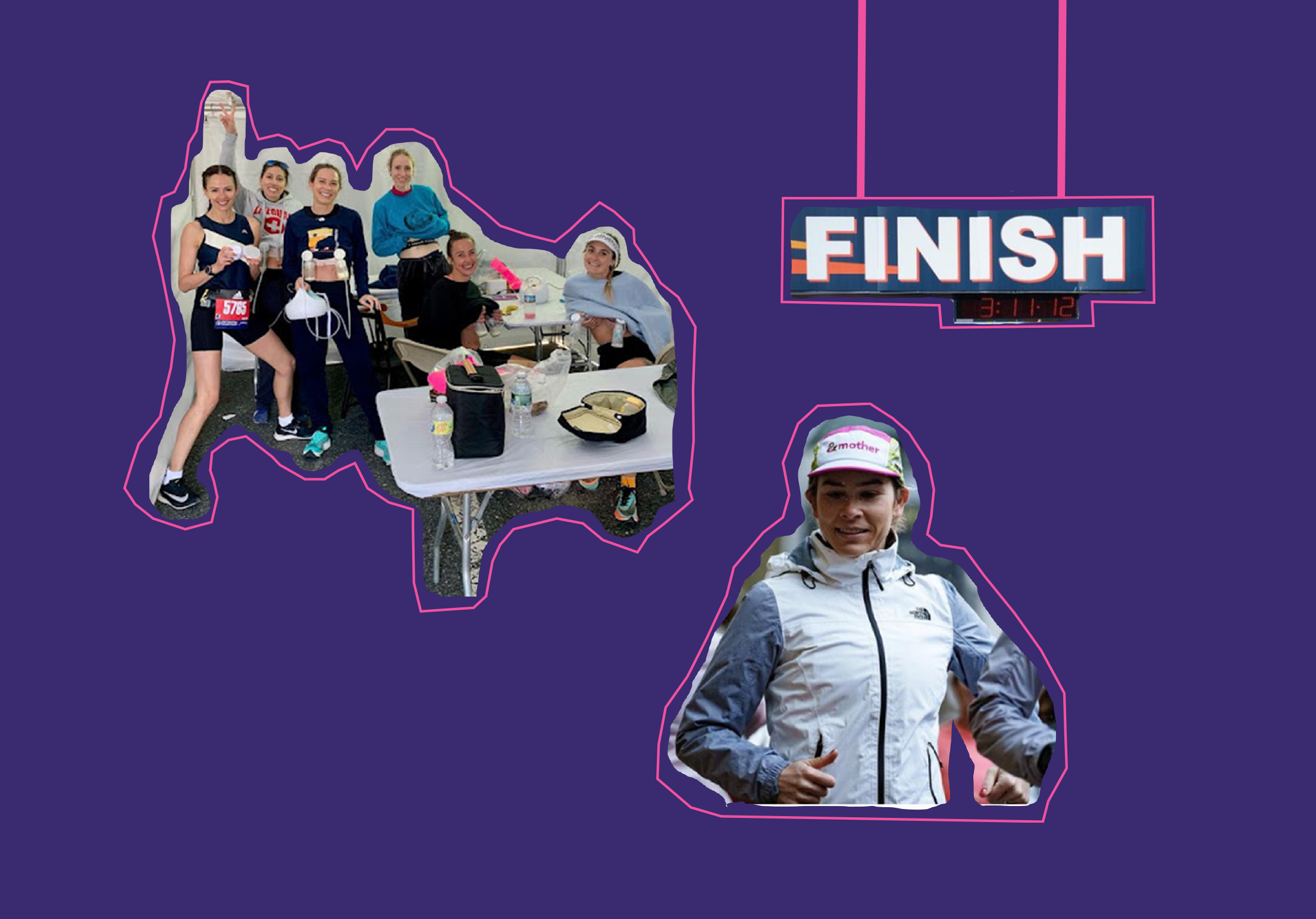When Aliphine Tuliamuk crossed the 2022 TCS New York City Marathon finish line as the top American, the moment was made even sweeter by her two-year-old daughter Zoe running into her arms. The Nov. 6 race was the first marathon Tuliamuk had finished since giving birth to Zoe in Jan. 2021, months before she represented Team USA at the Tokyo Olympics.
Only a few months postpartum and still breastfeeding, Tuliamuk and her coach felt confident in her training for the Tokyo Olympics. Then, just weeks before the race, they discovered there would not be any breastfeeding accommodations for her at the start of the marathon or throughout the course.
“I didn’t have enough time to pump the morning of the race,” Tuliamuk said on the Ali on the Run Show, a running podcast. “My breasts were feeling full at the start and I didn’t know how I could finish a marathon like this.”
In her Olympic debut, Tuliamuk submitted to a “did not finish” status just before the halfway point due to the lack of accommodations. Tuliamuk will always be an Olympian, but the lack of support on the course deprived her of the opportunity to truly compete and showcase her talent and fitness.
One year later, at the TCS New York City Marathon, Tuliamuk found herself in a much more supportive and inclusive environment for breastfeeders thanks to the tireless work of community organizers.
The New York Road Runners—the organization that spearheads the TCS New York City Marathon—announced an increased lactation plan in an effort to remove barriers to full participation for runners who are breastfeeding. Lactation tents and equipment were available for use in the starting villages at Fort Wadsworth and in miles 8, 16, and 22 along the course.
This expanded lactation plan not only creates space for professional runners like Tuliamuk, who are breastfeeding and competing at the highest level of the sport, but also eases the logistical concerns of the everyday breastfeeding runner, who does not have as much support as professional runners on race day.
“Our default is to assume that we will not be supported,” marathoner Julia Sachdev, a 33-year-old mom of two kids, said in an interview with the Voice. “The first two marathons I ran as a mother, my requests for pumping accommodations were denied.”
Sachdev competed in the 2018 California International Marathon eight months postpartum, despite her breastfeeding accommodation request being denied. With her husband acting as a courier for her pumping supplies, driving two hours so she could pump near the start, Sachdev successfully completed the race.
In collaboration with &Mother, an organization that supports mothers in sports, Sachdev is now working to make breastfeeding services more accessible in marathons and other road races—starting with the TCS New York City Marathon and the Boston Marathon.
“Running the Boston Marathon had been a dream of mine for years,” Sachdev said. “Running a sub-three-hour-and-five-minute race at 11 months postpartum would have been out of reach without the support of &Mother.”
Pursuing running goals and breastfeeding are not mutually exclusive, but the ability to operationalize adequate support systems for breastfeeding runners can influence their ability to continue succeeding in the sport.
Before 2019, many running sponsors, like Nike, falsely conflated pregnancy and motherhood with women’s abilities to perform well. Running contracts effectively steered athletes away from pregnancy during their peak performance years by withholding health insurance and paid time off for pregnancy.
After Olympian Kara Goucher gave birth to her son Colt in 2010, Nike suspended her contract until she started racing again. At seven months postpartum, Goucher raced in the Boston Marathon—not because she wanted to compete, but because she needed to get paid.
Since a 2019 New York Times article exposed these practices at Nike, many professional running contracts now include fewer punitive clauses around pregnancy. This decision maximizes a runner’s career potential, preventing runners from definitively choosing between their careers and the chance to start a family.
During the 2022 TCS New York City Marathon, six of the top 10 finishers in the women’s elite field were mothers to young children. Lonah Salpeter, Viola Cheptoo, Edna Kiplagat, Hellen Obiri, Tuliamuk, and Jessica Stenson finished second, fourth, fifth, sixth, seventh, and ninth, respectively.
In one of the most competitive fields in Abbott World Marathon Major history, such a dominant showing by mothers signifies a changing tide in the culture of professional distance running in favor of mothers continuing to compete after birth.
While everyday runners participate in races primarily for the sheer love of it, they still deserve similar support structures that encourage them to stay in the sport.
The expansion of breastfeeding accommodations through the &Mother movement creates a space that can support runners who are chasing big goals—but only if those who are breastfeeding know this resource is available to them. During the 2022 Boston Marathon, runners were only informed of the lactation tents if they first inquired directly.
“There was no press release about the accommodations,” Sachdev said. “Lots of pumping runners told me that they ran engorged, uncomfortable, or self-expressing milk in porta potties.”
In anticipation of the 127th running of the Boston Marathon on April 17, 2023, the Boston Athletic Association (B.A.A.) has announced its lactation plan and has also debuted a new program aimed at helping pregnant and postpartum runners.
For the first time, pregnant and postpartum runners can now defer their acceptance to the marathon, since current qualifications require individuals to qualify based on a time standard the year before the race. For expectant runners, this new program can ease the burden of qualifying and forgoing what could be a once-in-a-lifetime opportunity to participate in the race.
Pregnancy does not represent the end of a running career—and programs like these are normalizing and operationalizing what competition after birth can look like.
Thank you to Julia Sachdev for allowing us to use her photos in our design.






Inspirational, the story, and the writing.